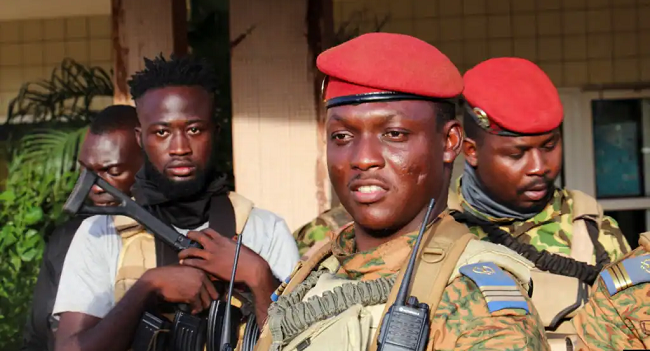Burkina Faso’s transitional parliament has unanimously passed a bill that criminalizes homosexual acts, marking a significant shift in the West African nation’s legal stance on LGBT rights. The legislation, announced by Justice Minister Edasso Rodrigue Bayala on state-run media, stipulates prison sentences ranging from two to five years, alongside fines. Foreign nationals found in violation of the law are also liable for deportation.
The next stage for the legislation is to obtain the signature of the country’s military leader, Capt Ibrahim Traoré, who has governed Burkina Faso since 2022 following a coup that ousted Lt Col Paul-Henri Damiba. The law comes just over a year after the country’s cabinet approved a draft amended family code that included provisions criminalizing homosexuality.
Previously, Burkina Faso was one of only 22 African countries where same-sex relations were legal. Unlike some African nations, including Uganda and Nigeria, which impose lengthy prison terms or even the death penalty for homosexual acts, Burkina Faso had no colonial-era anti-homosexuality laws. The country gained independence from France in 1960, and its legal framework historically did not target same-sex relationships.
The new legislation reflects the nation’s socially conservative and religious culture, with fewer than 10% of the population reported to be non-religious. Human rights groups warn that this law will likely exacerbate stigma, discrimination, and persecution of LGBT individuals in the country.
Burkina Faso’s move is part of a broader regional trend. Neighboring Mali, also ruled by a military junta, passed legislation criminalizing homosexuality last year. Similarly, Nigeria enforces strict anti-homosexuality laws, and Ghana’s parliament recently approved an anti-LGBT bill, though it has yet to be signed into law. Uganda has imposed the harshest measures on the continent, introducing life sentences and capital punishment for certain homosexual acts.
The legislation has already drawn criticism internationally, with organizations such as the World Bank previously penalizing countries for anti-LGBT policies. Critics argue that such laws not only violate human rights but also risk undermining social cohesion and development.
As Burkina Faso prepares for Capt Traoré’s approval, the passage of the law underscores a growing crackdown on LGBT rights in the Sahel region, signaling a challenging environment for sexual minorities in West Africa.

